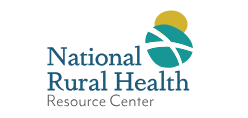August 18, 2025

Webinar: Advancing Mental Health Care: Access-Focused Virtual Care Strategies for HCA Healthcare Physician Practices and Urgent Care Centers, August 28
America’s behavioral-health crisis is intensifying, marked by soaring demand for mental health services and a nationwide shortage of psychiatric clinicians. To close these gaps, seamless coordination across every level of care is essential.
To make mental health support even more accessible for patients in HCA Healthcare physician clinics and urgent care centers, the healthcare organization teamed up with Talkiatry, adding high-quality virtual psychiatry to resources. Talkiatry virtual visits help ensure patients with mild to moderate mental health conditions in physician clinics and urgent care centers have access to board-certified psychiatrists when HCA Healthcare or community resources do not have capacity.
Join leaders from HCA Healthcare and Talkiatry to hear how collaboration and an access-first strategy can improve outcomes, enhance patient experience and meet the growing demand for behavioral health services.
Key Insights:
Discover how an integrated healthcare network, reinforced by strategic virtual care collaborations, can advance mental healthcare for physician clinics and urgent care centers.
- Benefits of increased access: to psychiatric care within the primary care setting, including improved patient outcomes and enhanced care coordination.
- Virtual care as a force multiplier: why a tele-psychiatry solution accelerates access for primary-care and specialty physician practices to complement existing HCA Healthcare and community resources.
- Scalable collaboration model: Practical steps and lessons learned for health systems looking to weave virtual psychiatry into an existing patient care resource.
Cost: Free
When: Thursday, August 28, 1:00 p.m. – 2:00 p.m.
Click Here to Register






